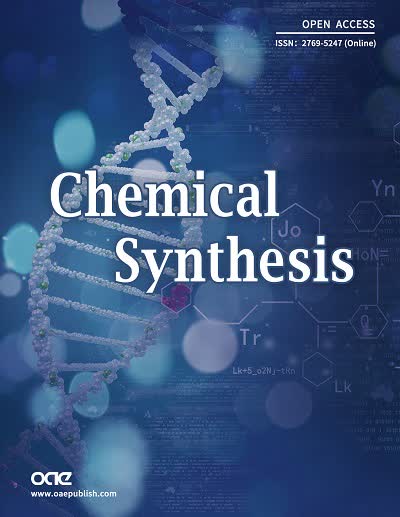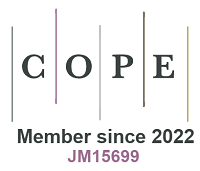Congratulations to Academician Tao Zhang, Guest Editor of Chemical Synthesis, for winning the 2024 Future Science Prize for Breakthroughs in Single-Atom Catalysis
On the morning of August 16, 2024, the Future Science Prize Committee announced the laureates of the 2024 Future Science Prize. Academician Tao Zhang, a Guest Editor of Chemical Synthesis and a researcher at the Dalian Institute of Chemical Physics, Chinese Academy of Sciences, was honored with the "Material Science Award."

The chemical industry plays a vital role in all facets of modern society, with catalysis being central to contemporary chemical processes. Developing efficient catalysts and feasible synthesis methods remains one of the foremost research goals in chemistry and chemical engineering. Solid-phase metal catalysts, typically in nanoparticle form, are extensively employed in industrial applications. Since the 1960s, researchers have sought to advance heterogeneous metal catalysts with optimized metal atom utilization and uniform catalytic sites by dispersing metals on carrier surfaces, where individual metal atoms act as the active catalytic centers. However, progress in this area has been limited. The primary obstacle is the lack of simple, feasible, and broadly applicable methods for preparing and characterizing single-atom heterogeneous catalysts.
In 2011, Tao Zhang, Jun Li, and Jingyue Liu reported a heterogeneous catalyst composed of platinum (Pt) embedded in iron oxide (FeOx) in an isolated monatomic state. This study successfully established both the synthesis and identification of a simple solid-phase catalyst, where single atomic platinum served as the active catalytic site. This catalyst demonstrated superior catalytic activity and selectivity. Zhang et al. coined the term "Single-Atom Catalysis (SAC)" to describe the catalytic function of such systems. They further showed that SAC could be extended to various metals, carriers, and catalytic reactions. This groundbreaking research sparked the rapid growth of "single-atom catalysis," which quickly evolved into a vibrant new field of catalysis research.
Yadong Li, a professor at Tsinghua University, was also awarded the "Material Science Award." Li et al. have systematically developed methods for synthesizing designable, controllable, and universally applicable single-atom catalysts. These methods enable the precise determination of catalyst morphology and complexation environments, facilitating the large-scale synthesis of single-atom catalysts with high-load metal centers and uniform microstructures. This work has laid a solid foundation for the application of such catalysts in industrial production. These methods have been widely employed in synthesizing catalysts with various functionalities, driving advancements in single-atom catalysis across the fields of chemical industry, materials, energy, and environmental science, thus expanding its influence.

Professor Yadong Li
The pioneering work of Tao Zhang and Yadong Li has opened the door to understanding the active sites of heterogeneous metal catalysts and provided a pathway to precisely regulate solid-phase catalysts at the atomic level. Their research in single-atom catalysis has positioned this field at the forefront of heterogeneous catalysis. Their achievements have led to the green and energy-efficient industrial production of bulk chemicals, such as vinyl chloride, acetic acid, and propanol, underscoring the potential of single-atom catalysis to contribute to sustainable development.
Award Introduction:
Established in 2016 by a group of scientists and entrepreneurs, the Future Science Prize recognizes original, fundamental scientific research and honors scientists who have made outstanding achievements in mainland China, Hong Kong, Macau, and Taiwan, irrespective of nationality.
Criteria for the award include:
Significant international impact;
Originality and long-term importance or have withstood the test of time;
Primary research conducted in mainland China, Hong Kong, Macau, or Taiwan, with no restrictions on the nationality of contributors.
The Future Science Prize currently includes three categories: Life Science Prize, Material Science Prize, and Mathematics and Computer Science Prize. Each award carries a monetary prize of approximately 7.2 million RMB (equivalent to 1 million USD). Since its inception in 2016, the prize has honored 39 winners—leading scientists in life sciences, physics, chemistry, mathematics, and computer science—whose original research has had a profound international impact.
The 2024 Future Science Prize Week will be held in Hong Kong from October 30 to November 3. Over 70 world-class scientists will gather at the Science Summit to discuss cutting-edge scientific topics and share the latest insights and forward-looking perspectives. The Science and Technology Forum and the Asian Young Scientist Fund Annual Meeting will focus on promoting interdisciplinary communication and innovation. The Youth Dialogue with Award Winners at the Hong Kong Science Museum will allow the prize recipients to share their research journeys and inspire future scientists. The highlight of the week will be the Future Science Prize Awards Ceremony at the Hong Kong Convention and Exhibition Centre.
Editor: Kangying Cao
Language Editor: Emma Chen
Production Editor: Yan Zhang
Respectfully Submitted by the Editorial Office of Chemical Synthesis








